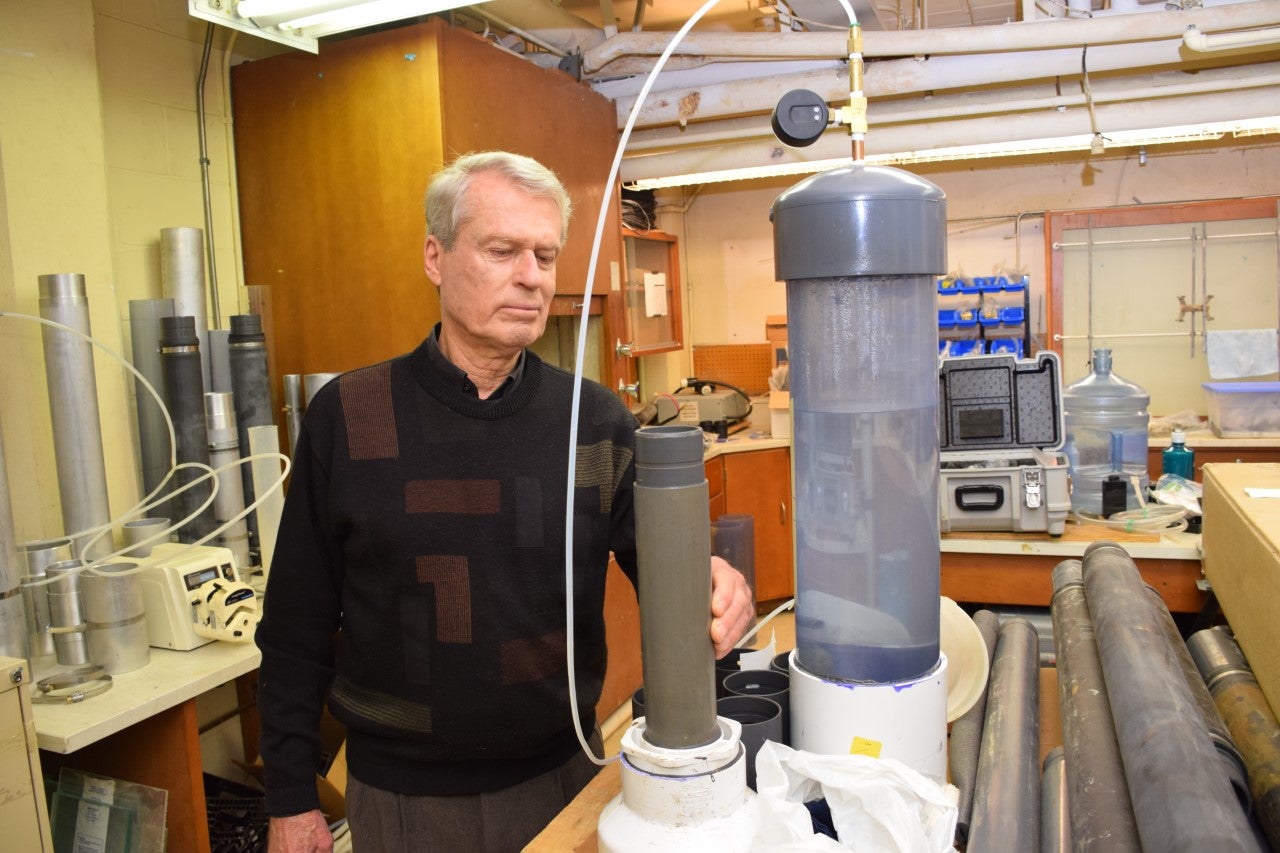
John Cherry, a distinguished professor emeritus in the Department of Earth and Environmental Sciences, has been awarded the 2020 Stockholm Water Prize Laureate for his work on groundwater contamination. He's an internationally recognized and sought-after advocate for the monitoring, management and protection of groundwater resources. The announcement was made by the Stockholm International Water Institute yesterday on the United Nations World Water Day.
Awarded annually since 1991, the Stockholm Water Prize is the most prestigious water award and honours individuals and organizations whose work helps to conserve and protect water resources. Cherry is the first hydrogeologist and the second Canadian to win the international award, which has gone to academics and organizations worldwide. His nomination was submitted by the University of Waterloo’s Department of Earth and Environmental Sciences and the Waterloo Water Institute.
Cherry is scheduled to receive the award from Princess Victoria of Sweden in late August and will address the opening session of this year’s World Water Week conference organized by the Stockholm International Water Institute (SIWI). He plans to use the one million Swedish Krona prize money to highlight what he calls the global groundwater crisis.
“Worldwide, groundwater quality is imperiled by pollutants, especially contaminants from agriculture, road salting, septic systems and industrial chemicals," said Cherry.
Cherry’s research pioneered the field of “contaminant hydrogeology”. His work transformed field research methods and the practice of contaminant hydrogeology, by globally advancing knowledge of the monitoring globally. He developed modern concepts for assessing contamination and passive remediation of groundwater plumes. His novel field experimental methods provided transformative knowledge about contaminants in sand aquifers, then fractured clay deposits and now fractured rock. His methods have become global standards and transformed the field. He co-authored the definitive textbook Groundwater, whichhas been the standard text in hydrogeology courses worldwide since its first edition. He is in the top three most highly-cited groundwater scientists and continues to develop new methods to collect data from the groundwater environment in simple and affordable ways.
A 2016 United Nations report projected that rising global temperatures, expanding urbanization and continued population growth will result in a 40 per cent global water deficit by 2030. Nearly all of Earth’s liquid freshwater is groundwater, including reserves that provide drinking water for about one in three Canadians. Almost half of the world population depends on groundwater for domestic use and many rely on it for irrigation.
"Groundwater as an issue that gets ignored in Canada and in many other countries” said Cherry. “It’s going on underground, so you can’t see it, but it’s the backbone of the freshwater cycle."
This summer, Cherry will launch the Groundwater Project, a series of e-books and other educational resources to be made available free online in several languages for schoolchildren to water professionals. Cherry has solicited chapters from hundreds of water experts worldwide. The project will be based at the University of Guelph, where Cherry is a principal investigator with the G360 Institute for Groundwater Research.
Cherry is a founding member of Hydrogeologists Without Borders and has been recognized with awards from United States, United Kingdom, Switzerland, Canada, Singapore (Lee Kuan Yew Water Prize, 2016) and the President’s Award from the International Association of Hydrogeologists (2019). Cherry has been named a Fellow of the Royal Society of Canada and a Foreign Fellow of the America Academy of Engineering. He's currently the Chair of Singapore’s Groundwater Expert Panel, and Co-chair of the China International Scientific Advisory Committee, China Ministry of Ecology and Environment.
Cherry traces his longtime interest in water resources to the work of his parents, Lawrence Cherry and Evelyn Spice Cherry, who experienced drought while growing up in Canada’s west. Both worked for the National Film Board and later ran a Saskatchewan documentary film company specializing in social and environmental issues.